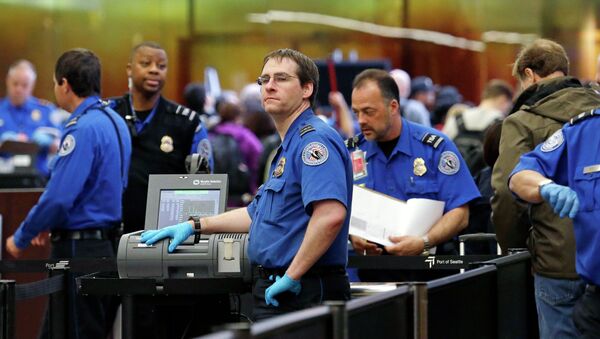But, the TSA-recognized luggage locks recently were hacked, and the perpetrators have made the "master keys" for the locks available to anyone with a 3D printer.
— J0hnny Xm4s (@J0hnnyXm4s) September 11, 2015
Jenna McClaughlin, of the Intercept, called the case a "spectacular failure of a 'back door' designed to give law enforcement exclusive access to private places."
However, the TSA does not seem to be worried about the gaffe.
"The reported ability to create keys for TSA-approved suitcase locks from a digital image does not create a threat to aviation security," TSA spokesperson Mike England said in an email to the Intercept.
"These consumer products are 'peace of mind' devices, not part of TSA's aviation security regime," England wrote.
"Carried and checked bags are subject to the TSA’s electronic screening and manual inspection. In addition, the reported availability of keys to unauthorized persons causes no loss of physical security to bags while they are under TSA control. In fact, the vast majority of bags are not locked when checked in prior to flight."
— Bernard Bolduc (@bernard) September 9, 2015
Last month, close-up photos of the master keys – published by the Washington Post last year in story about baggage in the hands of the TSA – began circulating online.
A group of lock-picking and security enthusiasts last week published a set of CAD files to Github that anyone can use to 3-D print a precisely measured set of the keys for the TSA-approved locks.
Hours later, at least one 3-D printer owner had downloaded the files, printed one of the master keys, and published a video proving that it opened his TSA-approved luggage lock.


